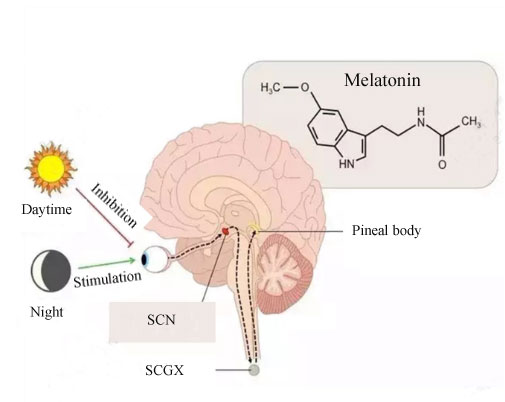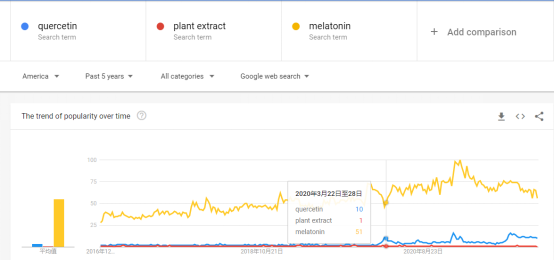
Melatonin can improve sleep and osteoporosis
Sleep is an indispensable part of human survival. Poor sleep quality is manifested in insufficient sleep time or depth. Long-term insomnia leads to circadian rhythm disorders and affects people’s normal work and life. Sufficient melatonin is very important for healthy sleep. As the main hormone secreted by the pineal gland, melatonin has the effect of calming and inducing sleep, and timely supplementation can effectively improve sleep.

Among the health foods for improving sleep, there are some products that use Chinese medicines such as date kernels, propolis, and tuckahoe as raw materials, but the quantity is very small. Compared with melatonin, health foods made from Chinese herbal medicines are not very specific for improving sleep, and their market performance is not ideal. Therefore, products that improve sleep have formed the dominance of melatonin.

Melatonin can be used to help fall asleep and treat sleep disorders. It is made by the pineal cells in the eye lens, gastrointestinal tract and pineal gland.
When it gets dark, the level of melatonin in the body will start to rise, sending a signal to the body that it is time to sleep. The visual signal is transmitted from the eyes to the area of the brain that is responsible for the circadian rhythm, and then to the pineal gland via nerves, causing the pineal gland to release melatonin into the bloodstream and produce effects. Melatonin binds to related receptors in the brain and helps reduce nerve activity. Binding to relevant receptors in the eye can help reduce dopamine levels. Of course, in the opposite case, light will inhibit the production of melatonin. In addition, melatonin also helps regulate body temperature, blood pressure and hormone levels.
Whether it is produced by medication or naturally produced by the body, melatonin enters the brain and acts on receptors in specific parts of the brain.

With the aging of the population, the incidence of osteoporosis is getting higher and higher. Traditional medical treatments are mostly based on preventing bone loss as the main mechanism, and there are various adverse reactions. Melatonin is an indole hormone secreted by the pineal gland and is thought to regulate bone metabolism. Melatonin enhances the differentiation of osteoblasts by activating MT2 receptors, regulating bone metabolism indicators, anti-oxidation, and regulating bone marrow mesenchymal stem cells (BMMSC). Therefore, melatonin is considered to have a good prospect in the treatment of osteoporosis.
Compared with synthetic melatonin, fermented melatonin has higher safety and lower solvent residue. As sleep problems become more and more common, the melatonin raw material industry is gradually in short supply.

© 2023. All Rights Reserved.Theme By avanherb
